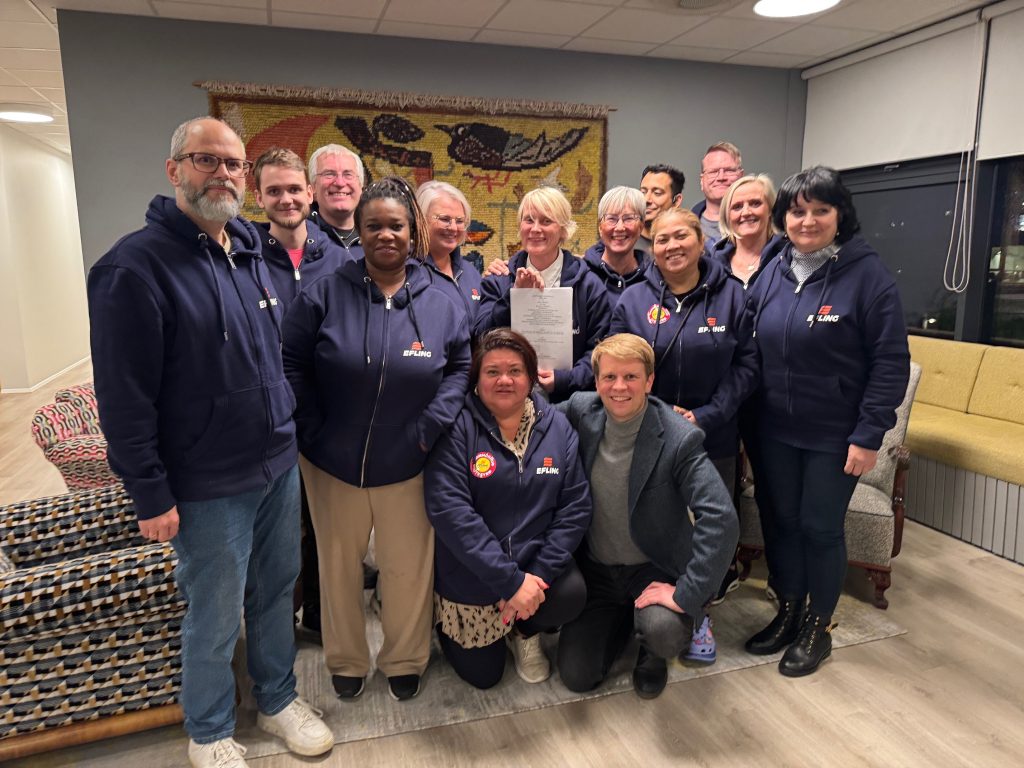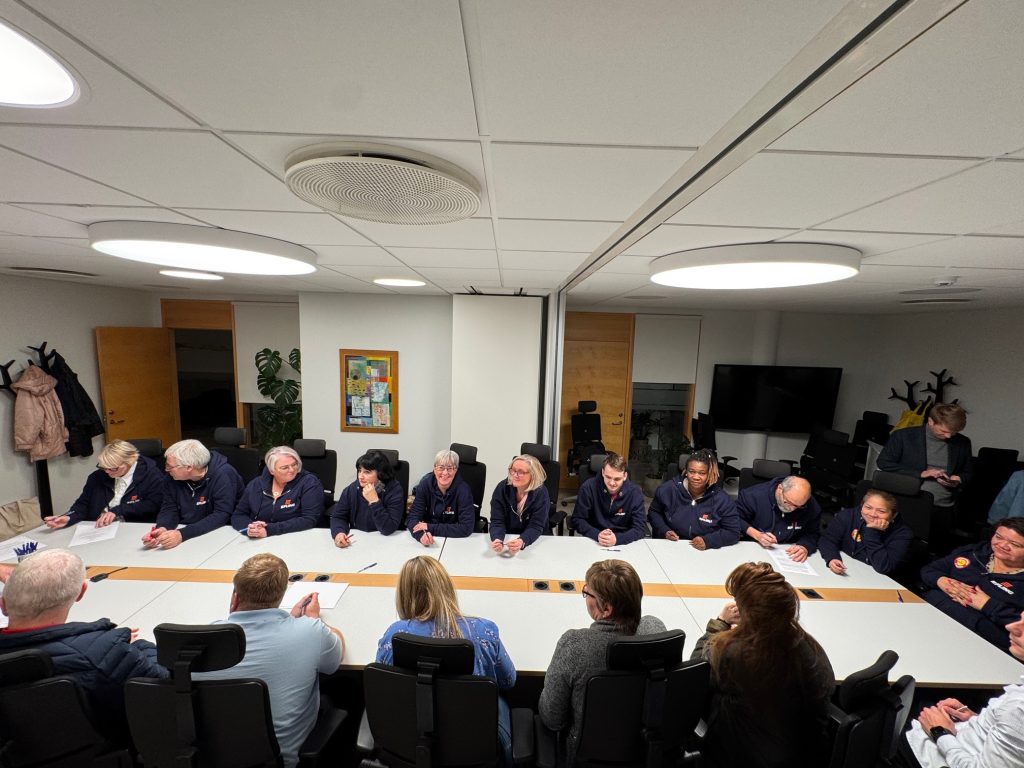
Last night, Efling’s negotiation committee signed a collective agreement with the Association of Companies in Welfare Services (SFV), covering over two thousand Efling members working in nursing homes and similar institutions in the Capital Region and Hveragerði. The agreement is valid from April 1, 2024, to March 31, 2028, spanning a 4-year period, including 6 months retroactively from signing.
The main demand of Efling’s negotiation committee in talks with SFV was to address the staffing crisis in nursing homes. This issue is well-documented in statistical data, for instance in a 2021 report by a task force led by Gylfi Magnússon. Moreover, accounts from Efling members about unacceptable understaffing and stress in nursing homes reflect this reality.
Efling is delighted that the newly signed agreement includes a deal with the government to address understaffing. According to this agreement, the Ministries of Health and Finance must provide funded and scheduled solutions to the nursing home staff shortage no later than April 1, 2025. If this is not achieved, Efling has the right to terminate the agreement with one month’s notice on May 1, 2025.
It is a cause for celebration to have brought the government to the table to address this issue, which clearly concerns not only Efling members but is also a crucial matter for residents, their families, and professionals in Icelandic nursing homes.
This marks the first time Efling has negotiated an independent collective agreement for nursing home staff, as this group’s agreements have automatically followed Efling’s agreement with the state for decades. In line with Efling’s methodology in recent years, an active negotiating committee of Efling members led the talks from start to finish.

Other points from Efling members’ demands were achieved, including:
- A new job title, group leader, is introduced with three additional pay steps. This title recognizes the growing responsibilities of Efling members in demanding and specialized nursing home roles, such as medication administration.
- A provision ensuring staff have comfortable facilities for breaks.
- Employees who are rarely sick according to the Bradford Factor are no longer required to submit sick notes for shorter illnesses.
- Priority for shifts of 8 hours is guaranteed for employees working 80% or more.
- The allowance for number of union representatives in each workplace was increased significantly, from maximum 2 to 5, depending on workplace size.
- An adjustment was made of salaries of workers in home care to align with those of the same group working for municipalities.
On wages, the agreement follows the wage policy that Efling, along with unions in the union alliance, developed for the private sector.
“We in the negotiating committee are extremely proud of the results achieved in these negotiations. We are also very proud to have organized this group’s collective bargaining for the first time using our open and democratic methods. Once again, we see that this is the path to success in the working class’s struggle for better conditions,” said Sólveig Anna Jónsdóttir, head of Efling Union.
Voting on the contract shall be completed on October 16, and the task of presenting the contract to members begins now.
The new collective agreement, in Icelandic, can be found below.